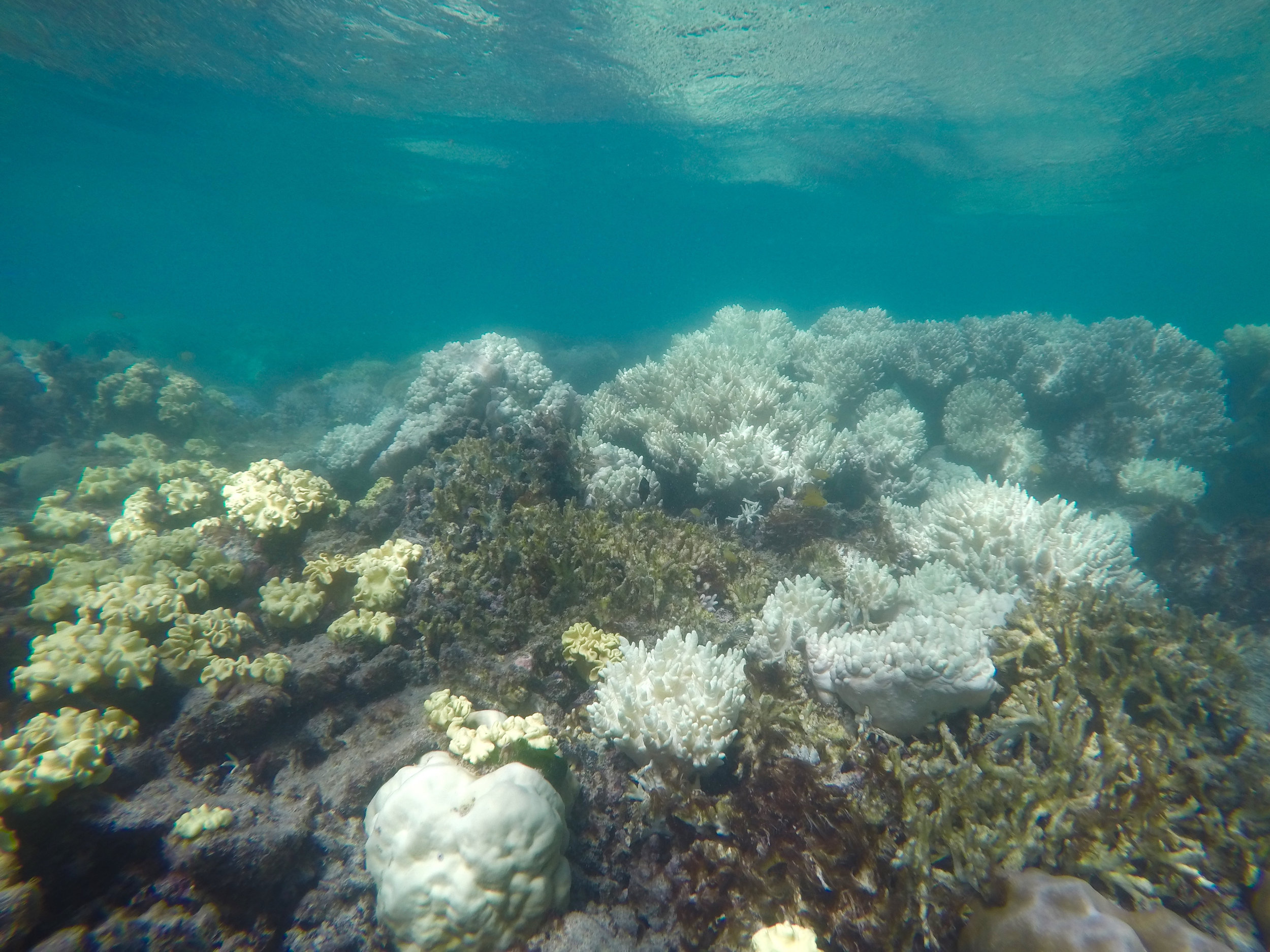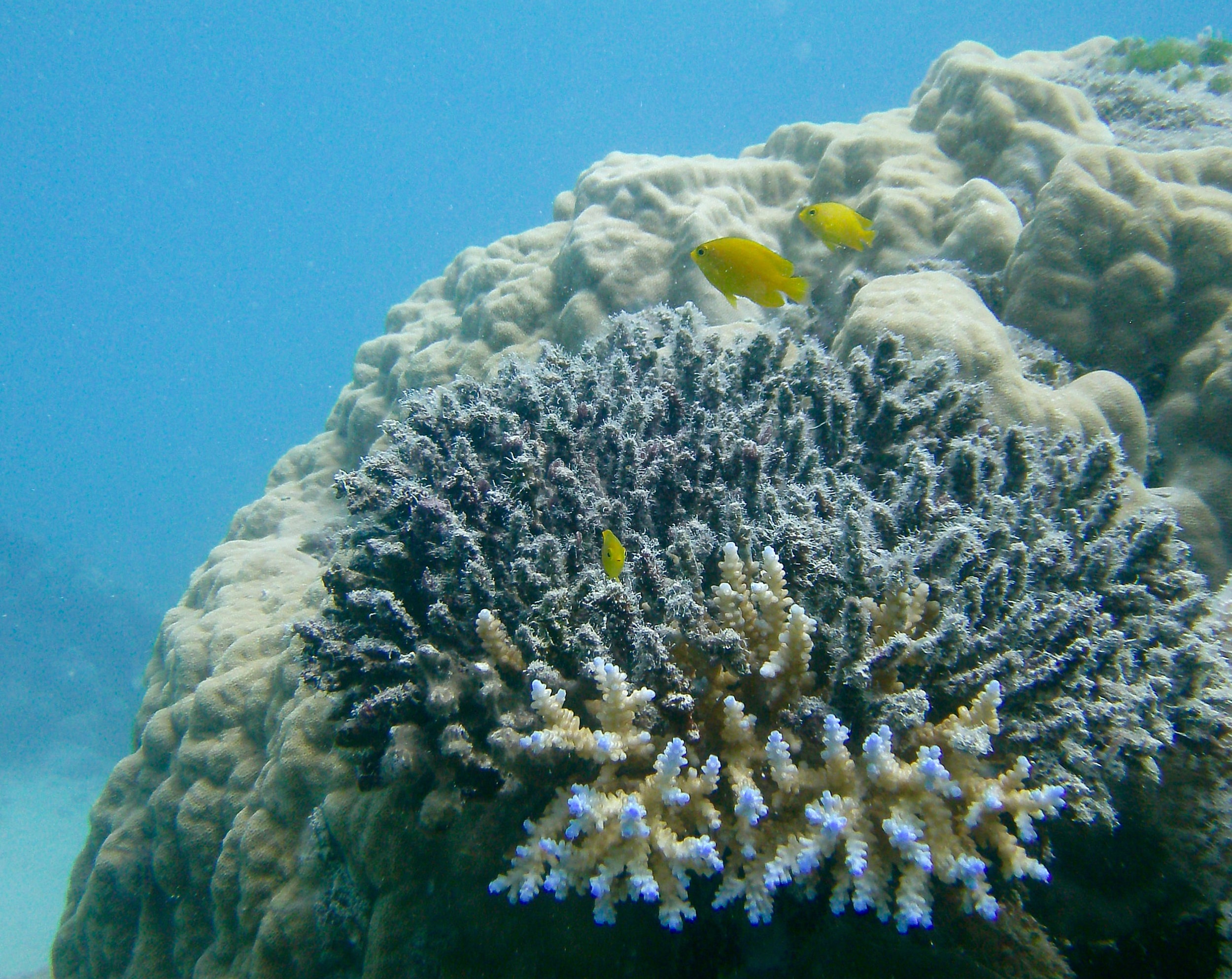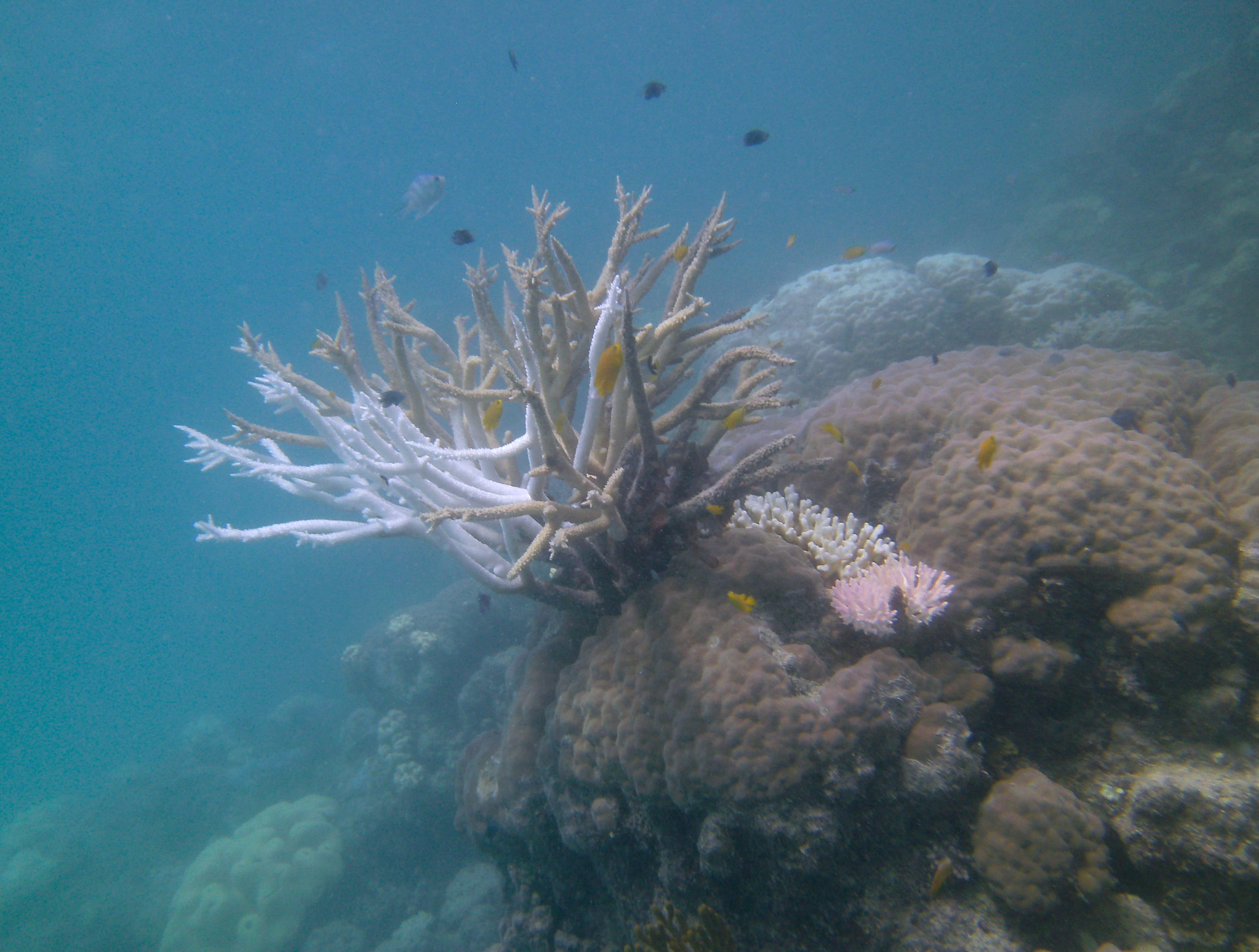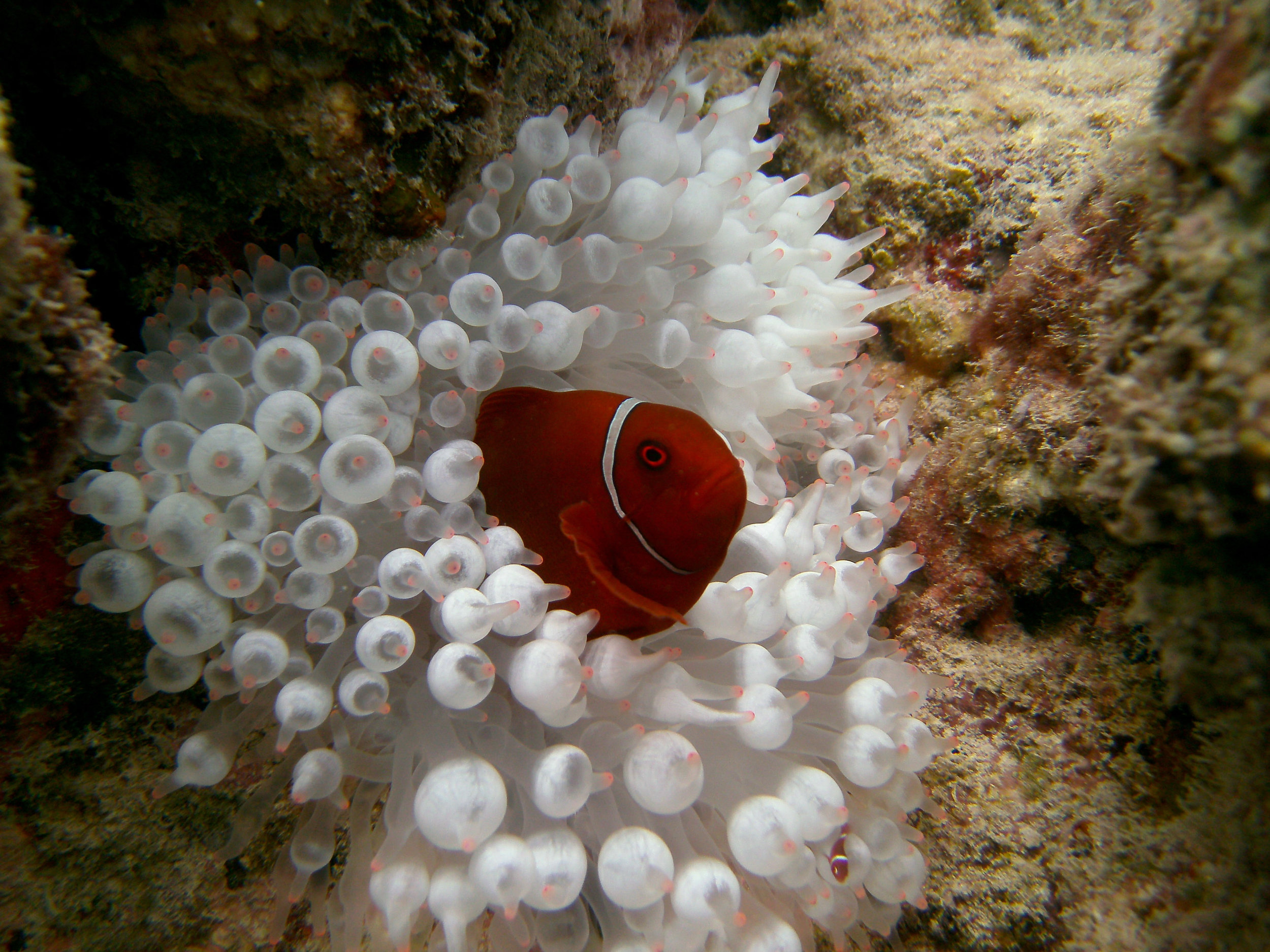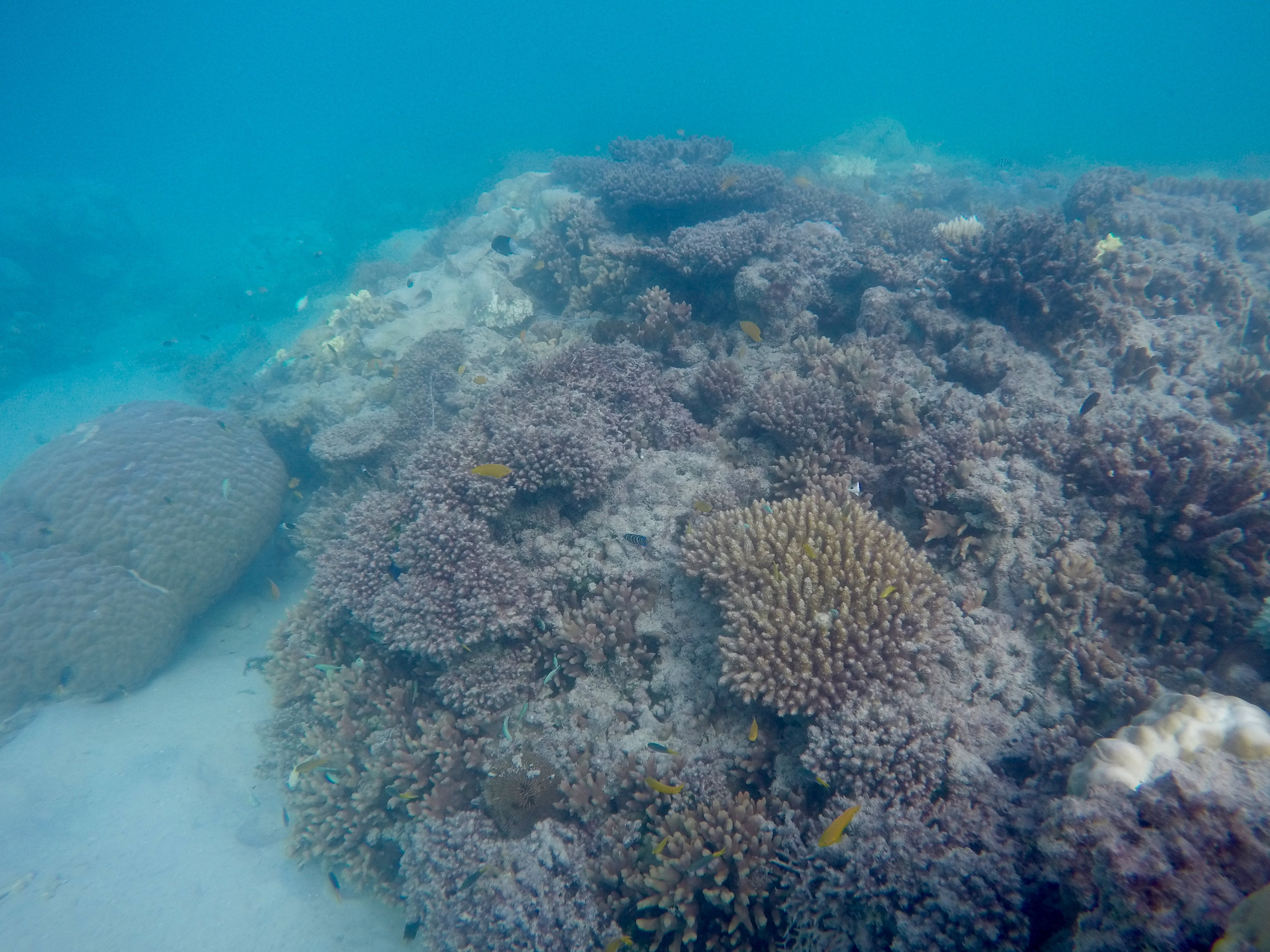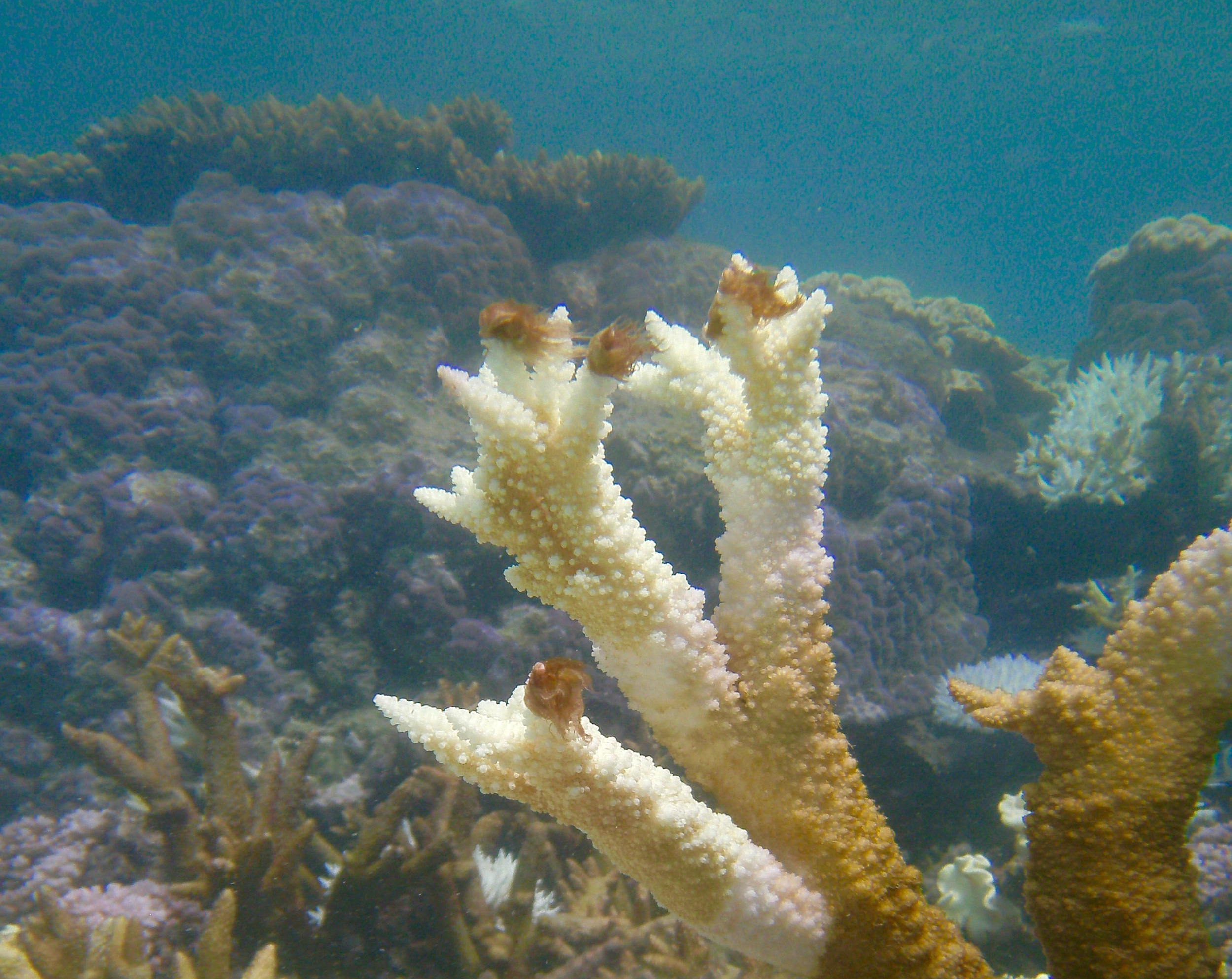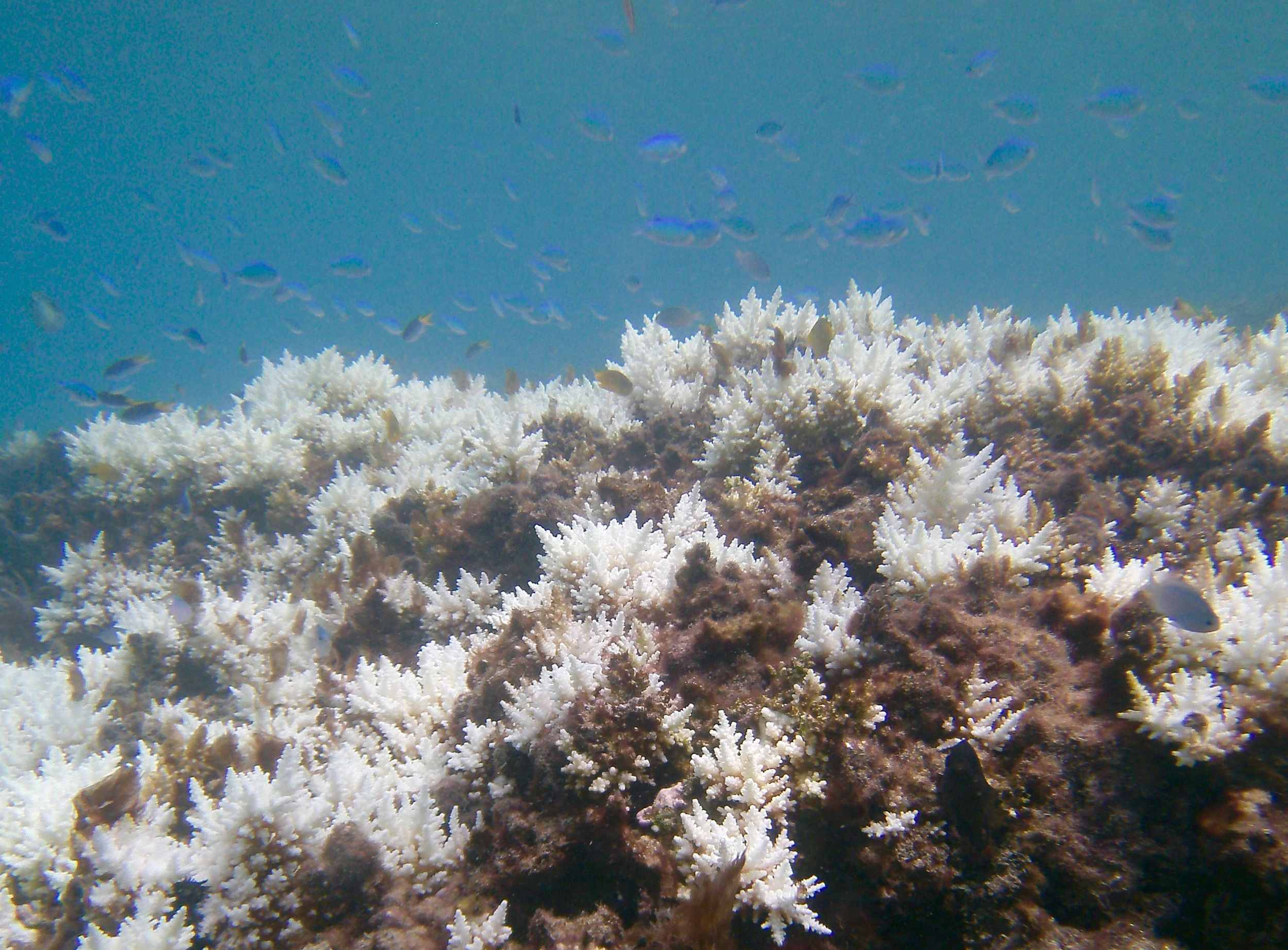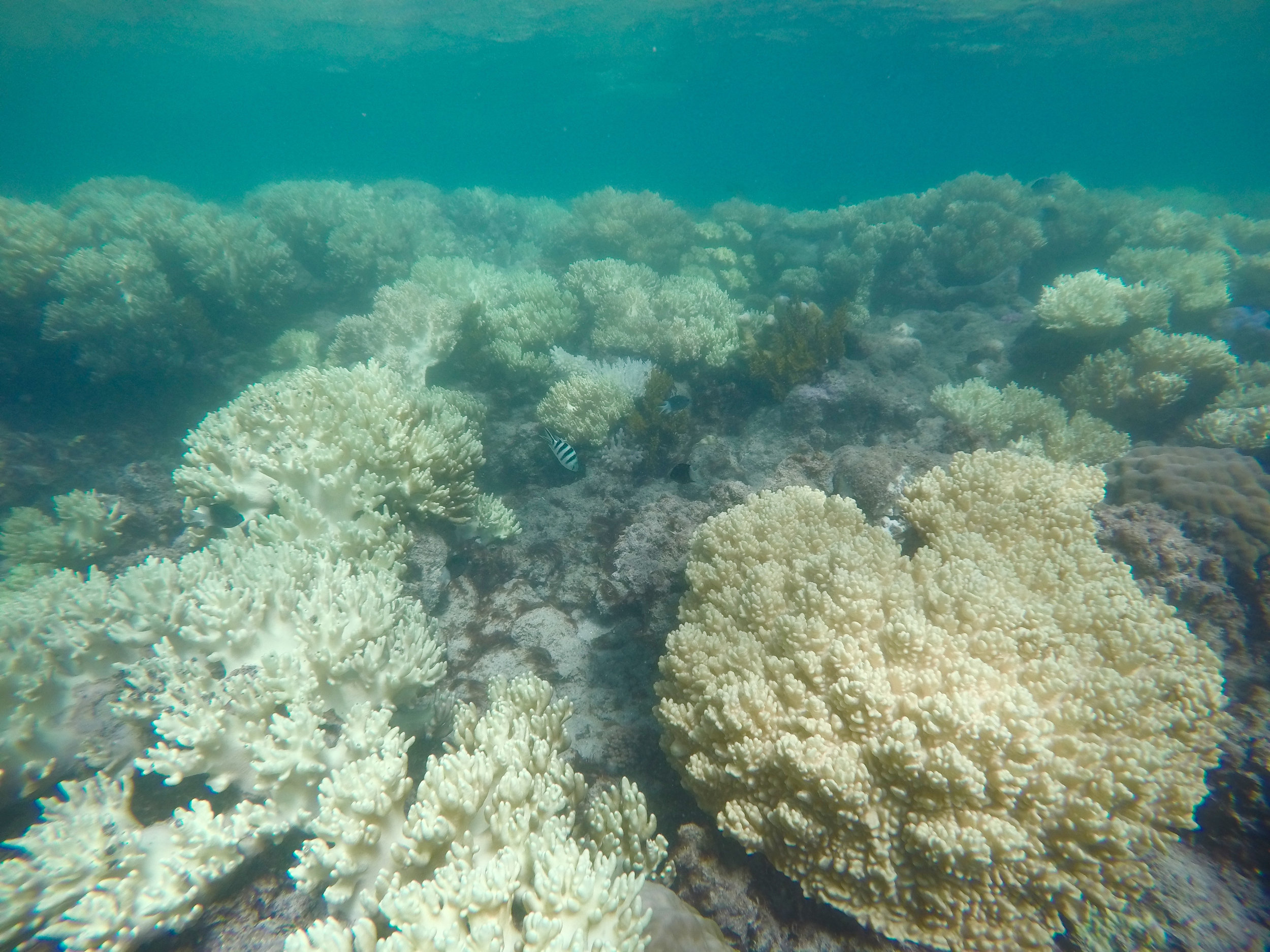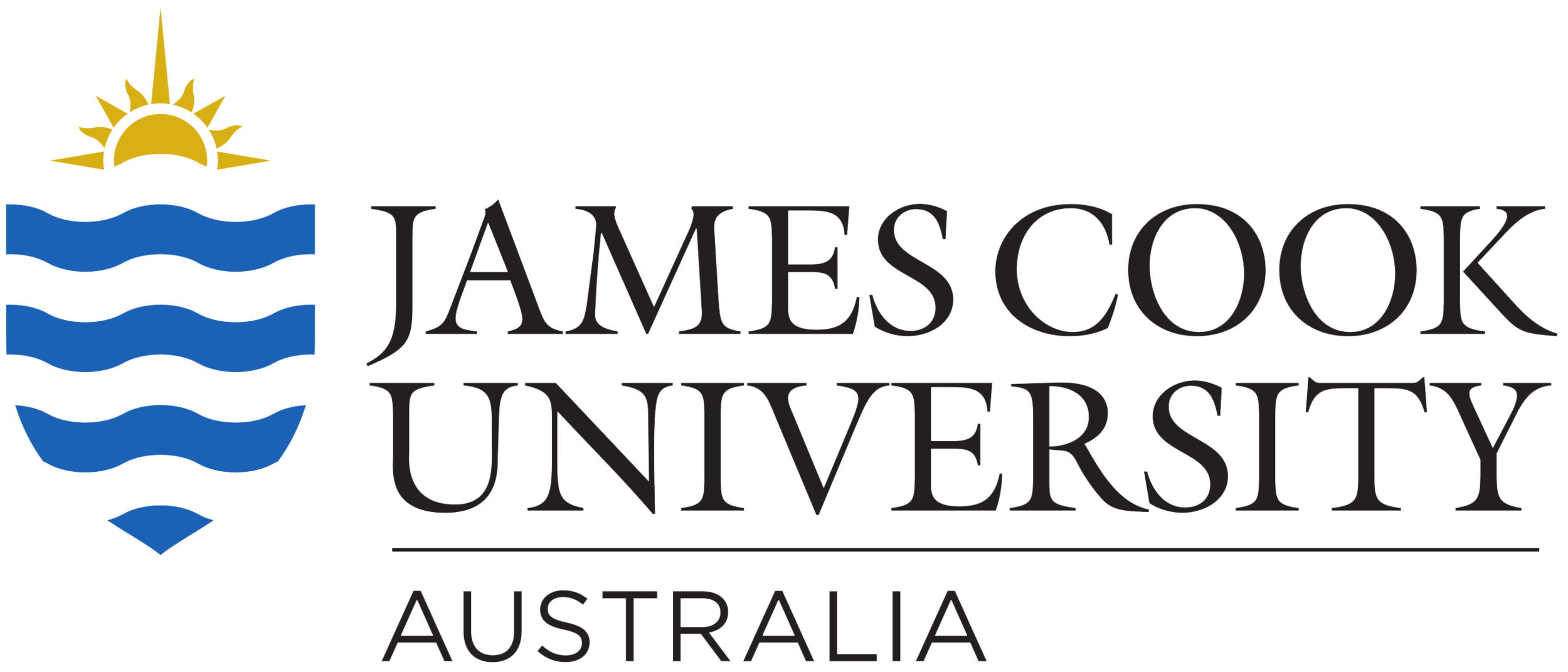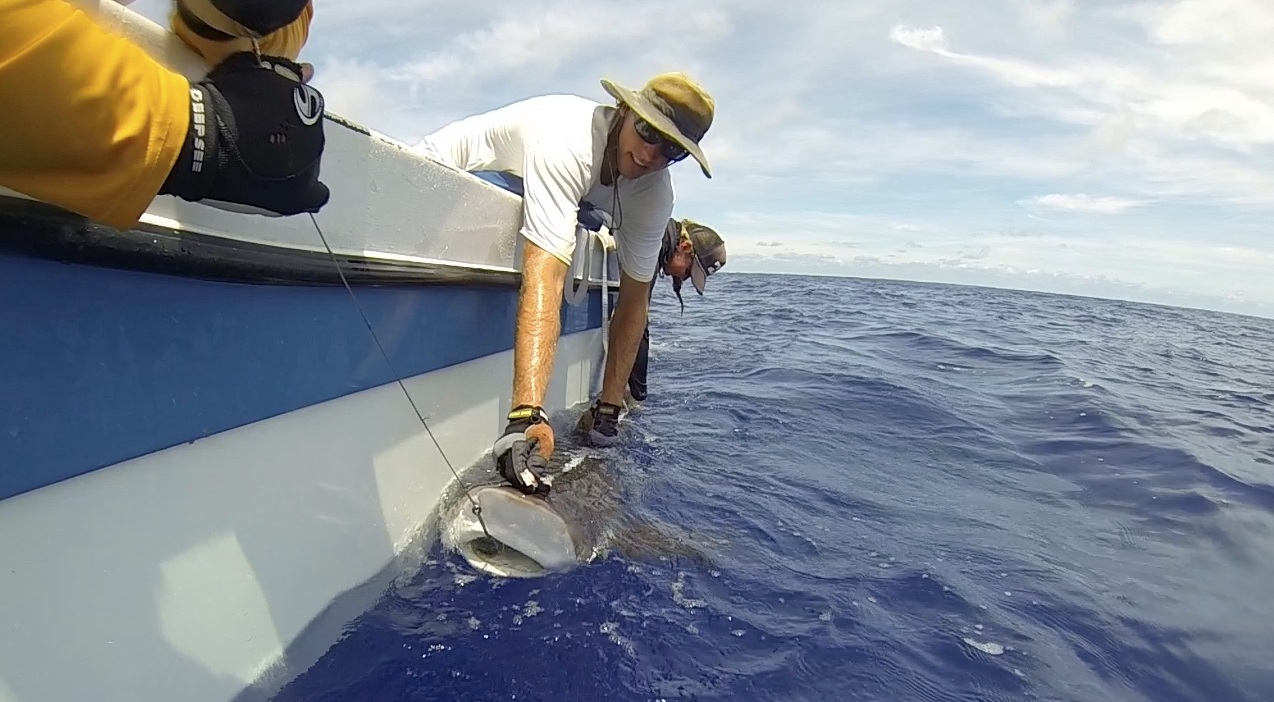Research
My research addresses three key aspects of marine science that directly inform conservation strategies.
My first objective focuses on the interactions between coral reefs and human communities. I aim to understand how much coral reef-derived foods matter to human health and identify effective reef management practices that lead to levels and types of seafood consumption that promote human nutrition.
The second research topic focuses on population and community responses of reef fishes to changes in habitat structure, with particular reference to coral cover, habitat complexity, and bleaching.
Specifically, my background is in reef fish herbivory dynamics, competition and coexistence, and predator-prey interactions. Thus, my third ongoing research objective is to continue to contribute to reef fish ecology.
For future work, I aim to tackle large-scale ecological and social-ecological coral reef issues under the overarching themes of climate change, human use and resilience. I am very eager to collaborate and am open to new projects. Students and colleagues, please see publications for data scope and read more about each topic below.
Follow my research updates:
Kiribati Gilbert Island Chain
1. Interactive dynamics of reef fisheries and human health
Coral reefs are the most biologically diverse marine ecosystems and provide food, jobs, and protection from storms for coastal communities. The foods derived from coral reefs play a critical role in supporting nutritional health in many countries. Under optimal conditions, an intact coral reef can provide an abundant supply of food resources to coastal communities. However, overfishing, pollution, environmental change, and economic globalization are currently transforming reefs and the surrounding communities, placing both the health of the reef and the health of people at risk. Our research seeks to understand the interactions between coral reefs and human communities.
Our project, funded by the US National Science Foundation (award abstract), will identify effective reef management practices that lead to levels and types of seafood consumption that promote human nutrition.
We unite the expertise of public health researchers (PI Dr. Christopher Golden), marine policy and fisheries trade specialists (co-PI Dr. Katherine Seto and co-PI Dr. Jessica Gephart), and coral reef ecologists (co-PI Dr. Douglas McCauley and co-PI Dr. Jacob Eurich) – in collaboration with the Government of Kiribati, the Secretariat of the Pacific Community (SPC), and other international academic institutions – to conduct the first empirical investigation into how coral reef health can benefit human health across an island-scale gradient in Kiribati. Our research will quantify the community health benefits of access to foods sourced from healthy reefs, which will galvanize local and regional support for coral reef conservation.
2. Community dynamics in the Anthropocene
I have a very broad range of interests within the field of reef fish population dynamics. With the current threats of climate change, I am particularly interested in how fish respond to changes in coral cover and habitat complexity, and the impacts of climate induced coral bleaching on coral reef fish assemblages. I worked on the 2015 - 2016 Great Barrier Reef coral bleaching event and conducted routine benthic monitoring in Kimbe Bay, Papua New Guinea from 2014 - 2017.
I have ongoing research with Harvard T. H. Chan School of Public Health under Dr. Chris Golden that focuses on the sustainability of marine systems and the interactions between fisheries and nutrition as part of a synthesis of global coral bleaching patterns. Merging the fields of nutritional epidemiology, fisheries ecology, conservation biology, and global change science, we aim to determine impacts on human nutrition from coral bleaching. By quantifying the dependence of different populations on seafood we will illuminate a stark future of what may happen if we do not begin protecting our coral reefs, fisheries, and other natural resources.
Lizard Island, GBR during and after the 2016 bleaching event (above) and associated pictures from the fieldwork (below).
3. Reef fish ecology
A major goal of ecology is to explain the mechanisms that drive species distributions and ecological partitioning along gradients in the natural environment. The distributions and coexistence of ecologically similar animals may depend on the degree of habitat specialization and behavioural interactions within and among species. The extent of ecological partitioning in guilds of coral reef fishes and overall function has been a matter of debate, but the roles of habitat selectivity and agonistic interactions have received little attention.
In my PhD thesis (ARC Centre of Excellence for Coral Reef Studies and James Cook University, 2018) these effects were examined by investigating fine-scale species distributions (Ch 1), microhabitat use, and competition (Ch 3) in a guild of seven territorial damselfish species in Kimbe Bay, Papua New Guinea. Using species comparisons, ecological surveys, and extensive field experiments, my research addressed novel questions about the ecology and functional role (Ch 2) of intermediate territorial damselfish and the resulting community effects (Ch 4). My main study species are intermediate-sized territorial damselfish, surgeonfish, parrotfish, and rabbitfish.
My PhD advisors were Profs Geoff Jones and Mark McCormick.
Full PhD here or see publications for links and associated press.
Previous research:
I started at University of California, Santa Barbara where I earned a BSc with Honours and Distinction in Environmental Science and Marine Biology with a Minor in Spatial Science (2012). I began work in the Channel Islands, CA studying lobster and urchin predator-prey interactions and urchin barren persistence in kelp forests under Dr. Robert Warner and Dr. Becca Selden.
During my undergrad I also worked as a Research Technician and Lab Assistant for the Partnership for the Interdisciplinary Studies of Coastal Oceans (PISCO) under Dr. Jenn Caselle to gain field sampling and monitoring experience.
After university, I continued invertebrate research with the California Department of Fish and Wildlife Marine Invertebrate Project (2011 - 2014) and remained active at UCSB researching fish communities on oil platforms with Dr. Milton Love.
I warmed up and switched to the tropics to conduct competitive and territorial research on surgeonfish and parrotfish at Palmyra Atoll, Line Isl., Kiribati with The Nature Conservancy, The Palmyra Atoll Research Consortium, and UCSB. Palmyra prompted my drive to study coral reef fish ecology and led to my PhD research.




